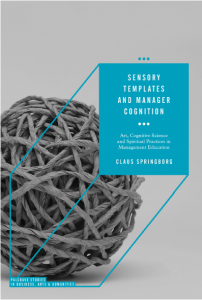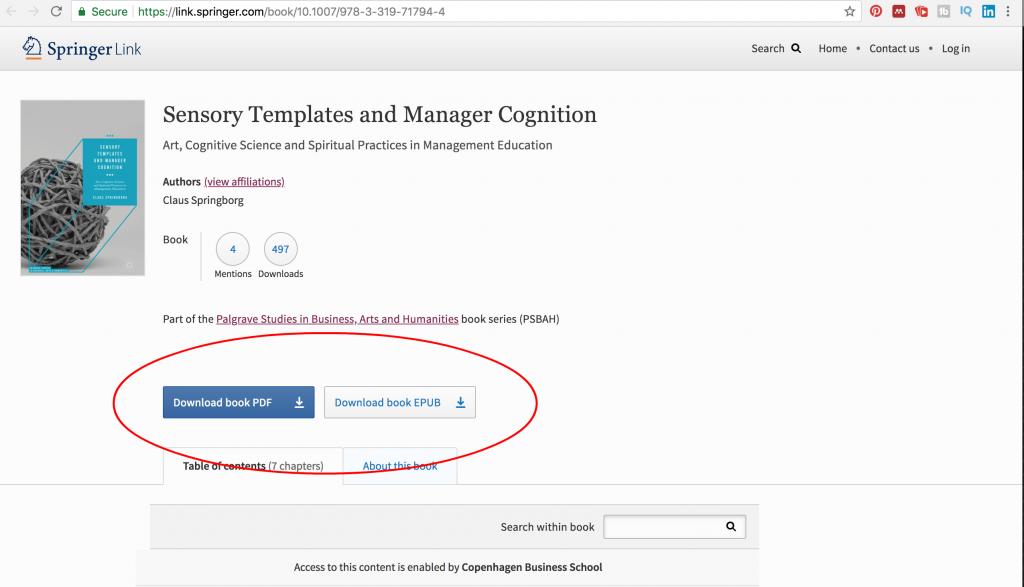 I have written a new book on how you as a manager can deal with those problems that on the one hand are important for you to solve, but on the other hand seems to persist no matter what you do. It can be very frustrating to be held back in your career by such problems. This book offers a practical and research-based approach to dealing with them.
I have written a new book on how you as a manager can deal with those problems that on the one hand are important for you to solve, but on the other hand seems to persist no matter what you do. It can be very frustrating to be held back in your career by such problems. This book offers a practical and research-based approach to dealing with them.
The book is available both in hardcover and as (free) PDF for your e-reader (details below).
About the book
This book explores the role of art and spiritual practices in management education. It takes recent developments in cognitive science relating to the metaphorical and embodied nature of cognition as its starting point. Introducing the concept of ‘sensory templates’, Springborg demonstrates how managers unconsciously understand organisational situations and actions as analogous to concrete sensorimotor experiences, such as pushing, pulling, balancing, lifting, moving with friction, connecting and moving various substances. Real-life management and leadership case studies illustrate how changing the sensory templates one uses to understand a particular situation can increase managerial efficiency and bring simple solutions to problems that have troubled managers for years. Sensory Templates and Manager Cognition will be of interest to scholars and students of managerial cognition, leadership and neuroscience, as well as practising managers and management educators.
Buy the book or download it for free
Click the link below to buy a physical copy of the book or download it as PDF or EPUB for your e-reader.
If you are connected to a network at an institution with a Springerlink subscription, you can download the book for free. It works at many business schools and university libraries.
If you do not have access to such institutions yourself, you can ask one of your friends in academia to download it for you.
Let’s start a conversation
I wrote the book because I believe it is useful to both managers and management educators and because I would like to discuss the ideas I present in the book. So if you read it, I would love to hear from you.
I’d be more than happy to answer questions and hear your ideas and feedback. I am also available for giving talks and working with managers in groups or individually.
